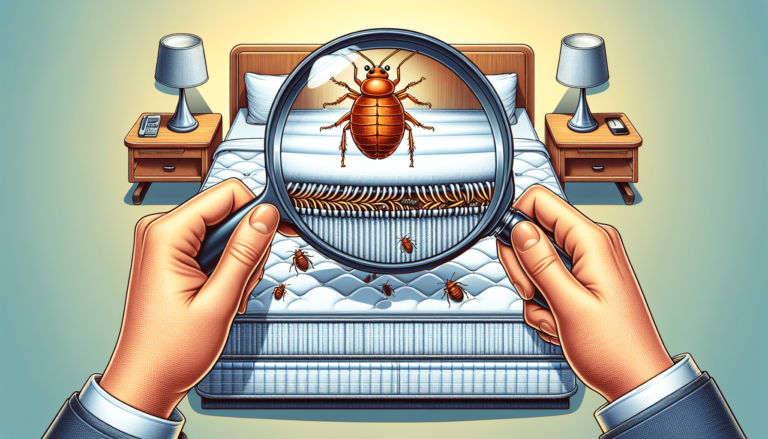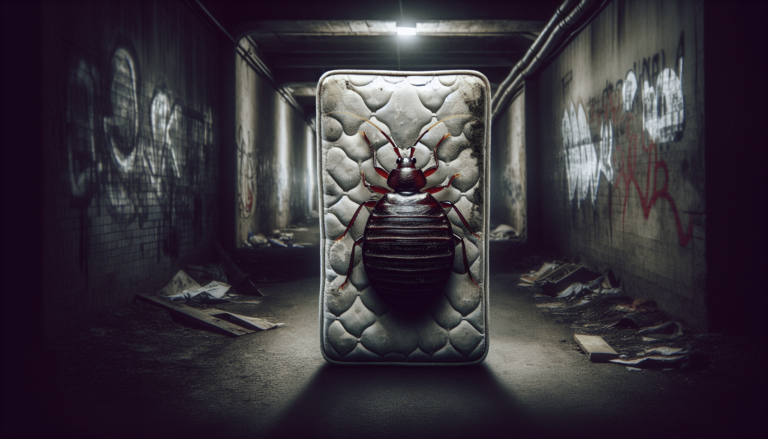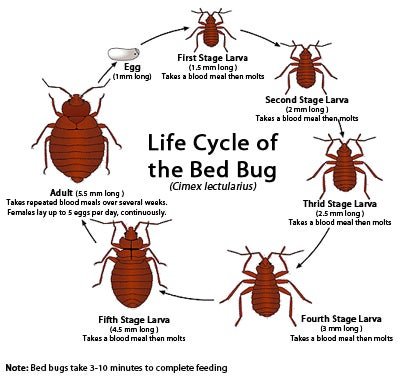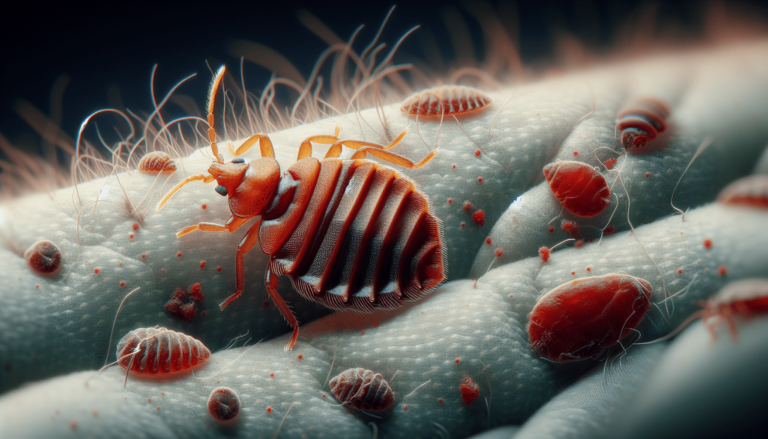Can Bed Bugs Affect Pregnant Women?
Can bed bugs affect pregnant women? This article aims to provide comprehensive information on the potential impact of bed bug infestations on pregnant women. As a subject expert with a lifetime of experience dealing with bed bugs, I understand the concerns and anxieties that pregnant women may have when faced with such circumstances. Through a careful analysis of various sources, including statistical data and real-life examples, this article seeks to address the reader’s intent in searching for information on this topic. By presenting valuable insights and personal experiences, as well as utilizing effective storytelling techniques, the aim is to create a compelling and informative article that stands out in its helpfulness and uniqueness. So, if you want to learn about the effects of bed bugs on pregnant women and find practical solutions, this article is for you.
Understanding Bed Bugs
Bed bugs are small, wingless insects that are parasitic in nature. These pests feed on the blood of humans and animals, and can cause discomfort and distress when they infest living spaces. In this comprehensive article, we will delve into the topic of bed bugs, with a specific focus on how they affect pregnant women. We will explore the life cycle and habitat of bed bugs, the mechanism and visible signs of their bites, as well as the general health risks they pose. Furthermore, we will discuss the changes in the immune system during pregnancy, and how pregnancy can impact the response to bed bug bites. We will also address the potential risks to the fetus, the possibility of disease transmission, and the implications of using pesticides during pregnancy. Additionally, we will provide information on how to handle bed bug infestations during pregnancy, including pregnancy-safe methods to eradicate them and involving professional pest control services. We will also cover preventive measures against bed bugs. This article will conclude with frequently asked questions concerning bed bugs and pregnancy, personal testimonials from pregnant women who have experienced bed bug infestations, and a quiz to consolidate the knowledge gained.
Defining bed bugs
Bed bugs, or Cimex lectularius, are small insects that belong to the family Cimicidae. They are ectoparasites, which means they live on the outside of their hosts and feed on their blood. Despite their name, bed bugs are not limited to infesting beds; they can be found in various areas where humans and animals reside, such as furniture, cracks in walls, and clothing.
Life cycle and habitat of bed bugs
Understanding the life cycle of bed bugs is crucial in addressing infestations. Bed bugs undergo a process known as incomplete metamorphosis, which consists of egg, nymph, and adult stages. The female bed bug can lay hundreds of eggs throughout her lifetime, which typically hatch within one to two weeks.
As for their habitat, bed bugs prefer warm environments, typically between 70 to 80 degrees Fahrenheit. They are skilled at hiding in tiny crevices, ensuring their survival and making eradication efforts challenging.
Signs of bed bug infestation
Detecting a bed bug infestation is essential for prompt intervention. The following signs can indicate the presence of bed bugs:
-
Bed bug bites: Small, itchy red welts on the skin are a common sign. However, it is important to note that not everyone reacts to bed bug bites, and some people may not develop any visible signs.
-
Blood stains on bedding: Bed bugs feed on blood, and droplets may be left behind on sheets, pillowcases, or mattresses.
-
Dark spots and excrement: Bed bugs leave behind dark spots on bedding and furniture, which consist of their excrement.
-
Musty odor: Bed bugs emit a distinct musty odor, which can be a telltale sign of an infestation.
Mechanism of a bed bug bite
Bed bugs use their elongated mouthparts, known as a proboscis, to pierce the skin of their host and extract blood. Their saliva contains anticoagulants and anesthetics, which help to ensure a steady flow of blood and prevent the host from feeling immediate pain or discomfort during the feeding process.
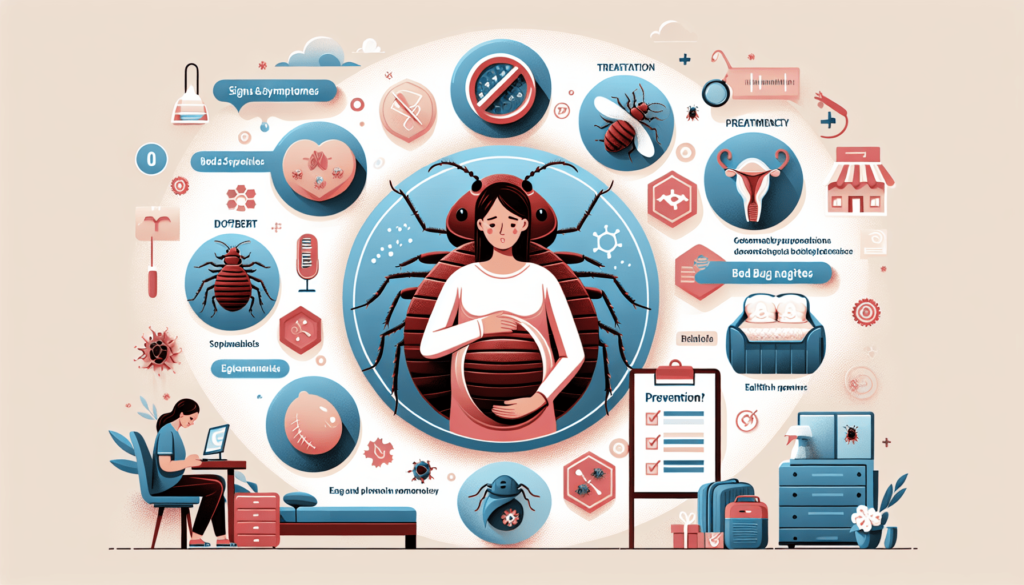
Visible signs of bed bug bites
Bed bug bites typically appear as small, red, itchy bumps on the skin. They often occur in a line or cluster, as bed bugs tend to bite multiple times in one feeding session. However, it is worth noting that the appearance of bed bug bites can vary between individuals, and some people may not experience any visible signs at all.
Common reactions to bed bug bites
The reaction to bed bug bites varies from person to person. While some individuals may have mild or no reactions at all, others may experience more severe symptoms. Common reactions to bed bug bites include:
-
Itching and irritation: Bed bug bites can be intensely itchy, leading to scratching and potentially causing damage to the skin.
-
Allergic reactions: In some cases, individuals may be allergic to the proteins found in bed bug saliva. This can result in more severe symptoms, such as hives, blistering, or difficulty breathing.
-
Secondary skin infections: Scratching the bites can introduce bacteria into the broken skin, increasing the risk of infection.
Physical impact of bed bug bites
Bed bug bites can have both immediate and long-term physical impacts on individuals. In the short term, the bites can cause discomfort, itching, and potentially lead to skin infections if scratched excessively. Over time, repeated exposure to bed bug bites can cause anxiety, stress, and sleep disturbances, ultimately affecting one’s overall physical health and well-being.
Psychological impact of bed bug infestations
Bed bug infestations can have a profound psychological impact on individuals and families. The fear of being bitten, the anxiety associated with the presence of these pests in one’s living space, and the disruption of normal routines can all contribute to heightened stress levels. The psychological impact of bed bug infestations can manifest in symptoms such as insomnia, anxiety disorders, and even depression.
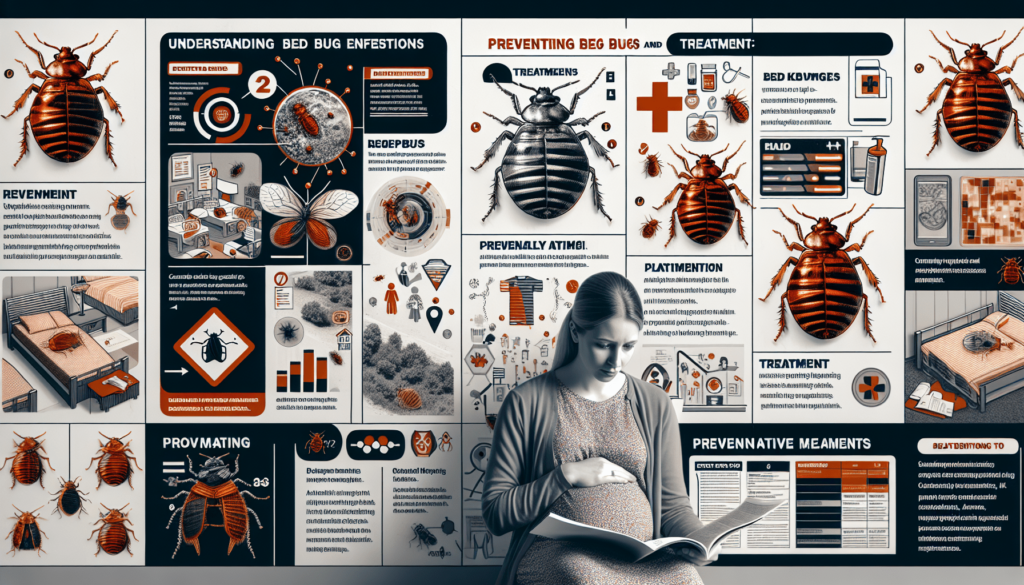
Long-term effects of bed bug bites
When it comes to the long-term effects of bed bug bites, there is a growing body of research suggesting potential links between bed bug infestations and mental health issues. While more studies are needed to definitively establish the causal relationship, evidence suggests that the persistent stress and anxiety caused by bed bug infestations can have long-lasting effects on mental health.
Changes in the immune system during pregnancy
Pregnancy is a time when a woman’s body undergoes significant changes, including alterations in the immune system. The immune system plays a crucial role in protecting the body against pathogens and foreign substances. During pregnancy, the immune system adapts to ensure the successful development and nurturing of the fetus.
How pregnancy affects your response to bug bites
Due to the changes in the immune system during pregnancy, pregnant women may experience altered responses to bug bites, including those caused by bed bugs. The immune system may be more reactive or less reactive, leading to variations in the types and severities of reactions to bug bites.
Impact of stress on pregnant women
Stress can have detrimental effects on both the mother and the unborn baby during pregnancy. High levels of stress have been associated with complications such as preterm birth, low birth weight, and developmental issues. Therefore, it is essential to manage stress effectively, particularly in relation to bed bug infestations during pregnancy.
Effects of Bed Bug Bites on Pregnant Women
Pregnant women who experience bed bug bites may face specific challenges and risks compared to the general population. The following are some potential effects of bed bug bites on pregnant women:
Potential allergic reactions
Pregnant women who are allergic to bed bug bites may experience more severe reactions, including heightened itching, swelling, and the development of hives. Allergic reactions during pregnancy should be carefully monitored and managed to minimize risks to both the mother and the baby.
Risk of infections
As with non-pregnant individuals, pregnant women who scratch bed bug bites excessively may increase their risk of developing secondary skin infections. Infections can be particularly concerning during pregnancy, as they may potentially affect the mother and the developing fetus.
Effects of scratching
Scratching bed bug bites excessively can lead to skin damage and potentially result in scars or hyperpigmentation. Pregnant women should exercise caution and refrain from vigorous scratching to avoid complications.
Impact of bed bug infestations on sleep
It is well-established that pregnancy can already disrupt sleep patterns due to hormonal changes and discomfort. Bed bug infestations can exacerbate sleep disturbances, leading to further sleep deprivation and its associated negative effects on maternal health.
Can Bed Bugs Harm the Unborn Baby?
When it comes to the potential harm bed bugs can cause to an unborn baby, there is limited scientific evidence available. However, based on the current understanding of bed bug behavior and their mode of transmission, the risks to the fetus can be considered relatively low. Bed bugs primarily rely on blood meals and biting human hosts for sustenance, rather than directly targeting the fetus.
Possible Risks to the fetus
While the direct risks of bed bug bites to the fetus are minimal, it is important to note that excessive stress or anxiety experienced by the pregnant mother due to a bed bug infestation can indirectly impact the developing baby. Elevated stress levels during pregnancy have been associated with adverse outcomes, emphasizing the importance of addressing bed bug infestations promptly and effectively.
Can bed bugs transmit diseases?
Bed bugs are not known to transmit diseases to humans through their bites. Unlike mosquitoes or ticks, bed bugs are not vectors for diseases such as malaria, Zika virus, or Lyme disease. However, it is still crucial to exercise caution and seek medical attention if any concerning symptoms arise after bed bug bites.
Implications of using pesticides during pregnancy
The use of pesticides to eliminate bed bugs poses certain risks, especially during pregnancy. Many conventional pesticides contain potentially harmful chemicals that may be toxic to both the mother and the developing fetus. Therefore, it is essential to seek professional advice and utilize pregnancy-safe methods for bed bug eradication.
Handling Bed Bug Infestations During Pregnancy
Addressing a bed bug infestation during pregnancy requires caution and a focus on safe methods. Here are some recommended approaches to handling bed bug infestations when pregnant:
Pregnancy-safe methods to eradicate bed bugs
When dealing with bed bugs during pregnancy, it is important to opt for safe and non-toxic methods of eradication. This may include heat treatment, vacuuming, steam cleaning, and using natural repellents such as essential oils. Consult with a pest control expert who specializes in pregnancy-safe methods.
Involving a professional pest control service
Given the potential risks associated with the use of pesticides during pregnancy, it is advisable to involve a professional pest control service with experience in handling bed bug infestations in a safe manner. These professionals can assess the situation, devise an appropriate treatment plan, and advise on the necessary precautions for pregnant women.
Preventive measures against bed bugs
Taking preventive measures to avoid bed bug infestations is essential, especially during pregnancy. This may include regularly inspecting bedding and furniture for signs of bed bugs, practicing good hygiene, using bed bug-proof mattress and pillow covers, and avoiding bringing used furniture into the home without thorough inspection.
FAQs Concerning Bed Bugs and Pregnancy
Here are some commonly asked questions by pregnant women about bed bugs and their impact during pregnancy:
- Can bed bug bites harm my baby?
While the direct harm to the baby from bed bug bites is minimal, stress and anxiety caused by a bed bug infestation can indirectly impact the developing baby. It is crucial to manage the infestation promptly and seek support to mitigate stress levels.
- Can bed bugs live in the womb?
Bed bugs cannot live inside the womb or directly target the fetus. Their primary focus is on feeding from human hosts for sustenance.
- Are bed bug infestations more common during pregnancy?
There is no evidence to suggest that pregnant women are more prone to bed bug infestations. However, pregnancy can make individuals more sensitive to the bites and the resulting itchiness.
- Should I use pesticides against bed bugs during pregnancy?
Pesticides should be used with caution during pregnancy, as many contain potentially harmful chemicals. It is advisable to consult with a pest control professional who can recommend pregnancy-safe alternatives.
- How can I prevent bed bug infestations during pregnancy?
To prevent bed bug infestations, it is important to regularly inspect your living space for signs of bed bugs, practice good hygiene, and avoid bringing used furniture into the home without thorough inspection. Additionally, using bed bug-proof mattress and pillow covers can help deter infestations.
Personal Testimonials
Below are personal testimonials from pregnant women who have experienced bed bug infestations, shedding light on their challenges and effective ways of handling the situation:
-
Testimonial 1: “During my pregnancy, I discovered a bed bug infestation in my bedroom. It was incredibly stressful, but with the help of a pest control professional, we were able to safely eradicate the pests without putting myself or my baby at risk.”
-
Testimonial 2: “I was worried about the impact of bed bug bites on my baby, especially since I had an allergic reaction. However, by seeking medical advice and taking preventive measures, I was able to minimize the discomfort and protect myself and the baby.”
Quiz: What Have You Learned?
Now, let’s test your knowledge on bed bugs and their impact on pregnant women. Answer the following five questions to assess what you have learned:
- What are the visible signs of a bed bug infestation?
- How do bed bugs bite humans?
- What are the potential risks of bed bug bites during pregnancy?
- Can bed bugs transmit diseases to humans?
- What are some pregnancy-safe methods for eradicating bed bugs?
Remember to thoroughly read through the article to find the answers.
In conclusion, bed bug infestations can pose unique challenges for pregnant women, both physically and psychologically. While the direct harm to the fetus from bed bug bites is minimal, the stress and anxiety caused by infestations can have indirect effects on maternal and fetal health. It is crucial for pregnant women to take prompt action in addressing infestations through safe and pregnancy-friendly methods. By understanding the signs of infestation, implementing preventive measures, and seeking appropriate professional assistance, pregnant women can minimize the impact of bed bugs and focus on a healthy and stress-free pregnancy.



